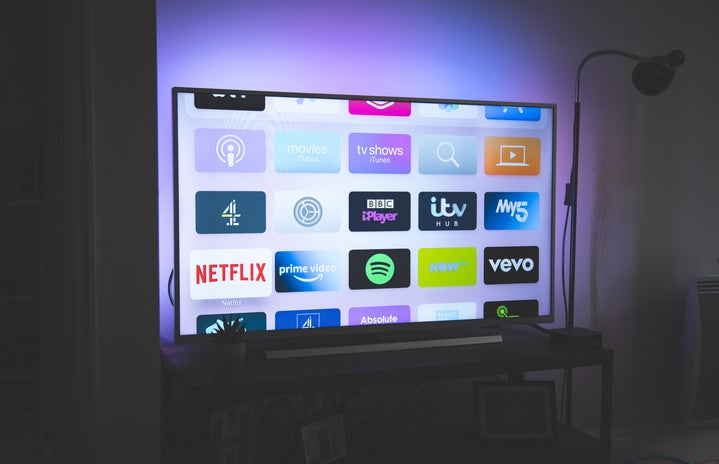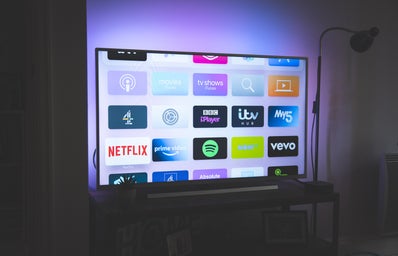There’s a lot streaming services get away with nowadays: canceling shows after a season or two, producing low quality movies, making password sharing nearly impossible, and so on. The switch from cable was meant to be a more enjoyable experience, and for a while it was. But recently the streaming experience has taken a turn for the worst.
As an avid Percy Jackson fan, I streamed the first episode the day it came out. My friend and I couldn’t help but notice the excessive amount of fade to black scenes that were occurring every couple of minutes. Now, “fade to black,” while not my favorite editing transition, is sometimes necessary to move from one setting to another. But, they’re typically used in a way that doesn’t interfere with the flow of the show and viewers don’t notice it enough to feel the urge to write about it. Many also took to social media to point out the lazy editing and question why studios have resorted to this technique.
The answer is quite simple: ads and greed.
Considering the events of last year, it’s not hard to see why major studios are either incorporating ads into their plans or hiking up prices. In May of 2023, the Writers Guild of America (WGA) called for a strike when studios refused to meet their demands to be compensated fairly in the new streaming era. The strike went on for five months and finally ended when studios agreed to the WGA’s terms. Unfortunately for Hollywood studios, they are now expected to pay their writers higher wages and residuals.
But, where is the money for that going to come from? Surely, the CEO’s could afford to take a pay cut of their million-dollar salaries to pay their writers, right? Wrong. Why would Bob Iger lose out on his $31.6 million paycheck when he can just increase the price of Disney+?
This is where it falls on viewers to pay the difference.
It’s no secret that the price of streaming platforms have been steadily increasing over the past couple of years. Netflix’s original standard prices went from $7.99 in 2011 to today’s basic plan of $11.99. That may not seem like a major increase, but considering that the benefits of the standard plan haven’t changed, it is actually a lot. Not to mention, Netflix isn’t the only streaming service available. Now, you can have Netflix, Hulu, and Disney+, but still miss out on shows like “Game of Thrones” or “Succession” because they’re only available on Max. By limiting the distribution of their shows, studios are able to get away with hiking up their prices because they know viewers will pay it. The average person spends $48 on streaming services each month and with premium prices continuing to increase, the ad-supported plans are slowly becoming the default.
Don’t ads defeat the purpose of streaming? Yes!
The purpose of streaming was to make a more enjoyable experience for consumers with content that was readily available and with no interruptions for a more affordable price than traditional cable. By defaulting to ad-supported plans, studios are essentially taking away one of the most intriguing benefits of streaming.
Circling back to the fade to black transitions, they have become the new norm since studios have to incorporate breaks into their shows in order to place the ads that are paying them. This means that the experience doesn’t just become less enjoyable for those with ad-supported plans, but also for those without it. The harsh editing of fade to black makes shows look choppy and is quite distracting because of how often the transitions are happening.
Studios are more than capable of paying writers their fair wages without having to put the burden on their consumers. Unfortunately, studio executives are comfortably accustomed to their high salaries and would rather ruin their products than take a pay cut. It will be interesting to see what the future of streaming looks like if prices continue to rise while the quality of television editing declines.


